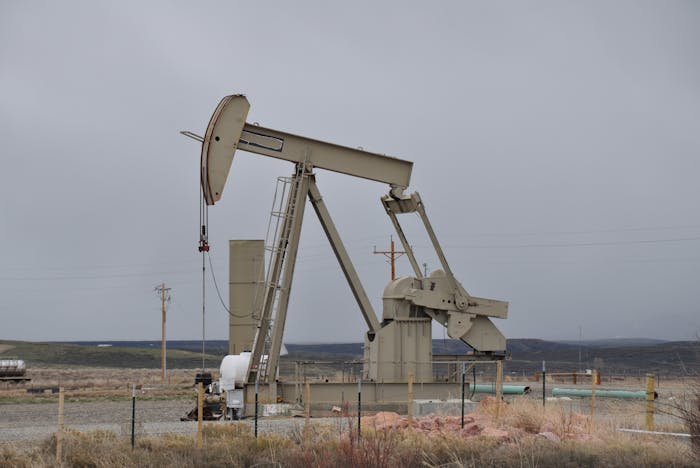Oil and gas royalty owners often depend on state laws to protect their property rights and secure fair payments. Differences in these legal safeguards can affect how much money owners receive and how simple it is for them to resolve disputes or manage their interests. Understanding which U.S. states offer the strongest legal protections can help royalty owners make better choices and protect their income.
People who want to know more about the financial side of owning mineral rights often ask questions like how much is average gas well royalties per acre are, as this can change depending on the location and regulations. Legal differences from state to state mean that the experience for royalty owners is not always the same across the country.
West Virginia – Strong protections against post-production cost deductions following landmark court rulings
West Virginia gives clear protections to royalty owners when it comes to post-production cost deductions. Courts have ruled that producers cannot take out these costs unless it is clearly stated in the lease.
The courts in West Virginia follow the “marketable product” rule. This means that royalty owners get paid their share before most costs of getting the product ready for sale or getting it to market are subtracted.
Recent court decisions confirm that if a lease does not specifically allow for deductions, companies cannot take post-production costs out of royalty payments. This gives many owners more predictability in what they will receive.
If a lease is vague or silent about these deductions, West Virginia courts usually side with the royalty owner. Clear language in the lease is needed for any deductions to be allowed. These rules help protect the payments that royalty owners receive from oil and gas production.
Pennsylvania – Legal minimum royalty rate set at one-eighth (12.5%) with clear enforcement
Pennsylvania law requires that oil and gas royalty owners receive at least a one-eighth, or 12.5%, share from oil or gas produced on their land. This rule is set by state legislation and is often called the Guaranteed Minimum Royalty Act.
Landowners cannot accept less than this minimum rate in their lease agreements. A deal that pays less is considered invalid by state law. Courts in Pennsylvania have upheld this standard, so it is legally supported.
The law does not name the exact point in the process when the royalty is calculated. This causes some disputes over how post-production costs affect the final payment. Still, the rule provides a clear, legal minimum, helping protect royalty owners from very low payments.
Recent legal cases have confirmed that this minimum must be met. The law makes it harder for companies to use legal tricks or wording to pay below the one-eighth rate.
Delaware – Strict state regulations set minimum royalty rates and compliance monitoring
Delaware has put strong rules in place for oil and gas royalty owners. The state sets minimum royalty rates by law, so property owners know the least amount they should be paid.
Agencies regularly check for compliance with lease agreements and payment rules. This helps to make sure that companies follow the laws and pay the right amount.
Delaware’s laws give royalty owners clear expectations when making agreements. The state’s focus on oversight helps promote fairness in the oil and gas industry.
While Delaware’s oil and gas industry is smaller than in some other states, it still pays careful attention to regulation. The combination of minimum royalty requirements and regular monitoring protects owners’ interests and makes rules easy to follow.
Texas – Strong legal framework balancing producer and royalty owner rights
Texas law provides clear protections for those who own oil and gas royalties. State statutes outline how payments should be calculated and what information must be given to royalty owners. For example, royalty owners have a right to ask for details on deductions, gas heating values, and the lease or well identification numbers.
Payment timelines are set by law, helping to reduce payment delays and provide predictability for owners. Producers are allowed to deduct some costs, but only if the lease does not say otherwise. This balance tries to respect both the needs of producers and the interests of royalty owners.
Royalty owners who think they were not paid properly can use state legal processes to make a claim. The rules are clearly written, which helps avoid confusion and supports fair dealings between all parties. These factors make Texas stand out for its legal clarity in oil and gas royalty matters.
Louisiana – Comprehensive laws protecting royalty interests and lease terms
Louisiana law is known for setting clear protections for royalty owners in the oil and gas industry. The state’s Mineral Code outlines rights for owners and keeps mineral rights separate from land ownership. This structure makes it easier for individuals to manage and transfer interests.
A key rule in Louisiana prevents oil and gas companies from withholding royalty payments if a division order has not been signed. This protects royalty owners from delayed payments due to paperwork issues. The law also states that signing a division order does not change the terms of the lease.
Companies must also report certain information to the owners of oil and gas interests. There are penalties for failing to report or provide payment on time. Altogether, these rules make Louisiana a leading state in protecting those with royalty interests in oil and gas leases.
Conclusion
Some states offer oil and gas royalty owners stronger legal safeguards than others. Laws can vary in how they handle property rights, payments, and dispute resolution.
States with clear statutes and fair court systems can give royalty owners better confidence in protecting their interests.
Choosing the best state depends on individual situations and local regulations.
Legal advice and research on state laws can help royalty owners make informed decisions.


